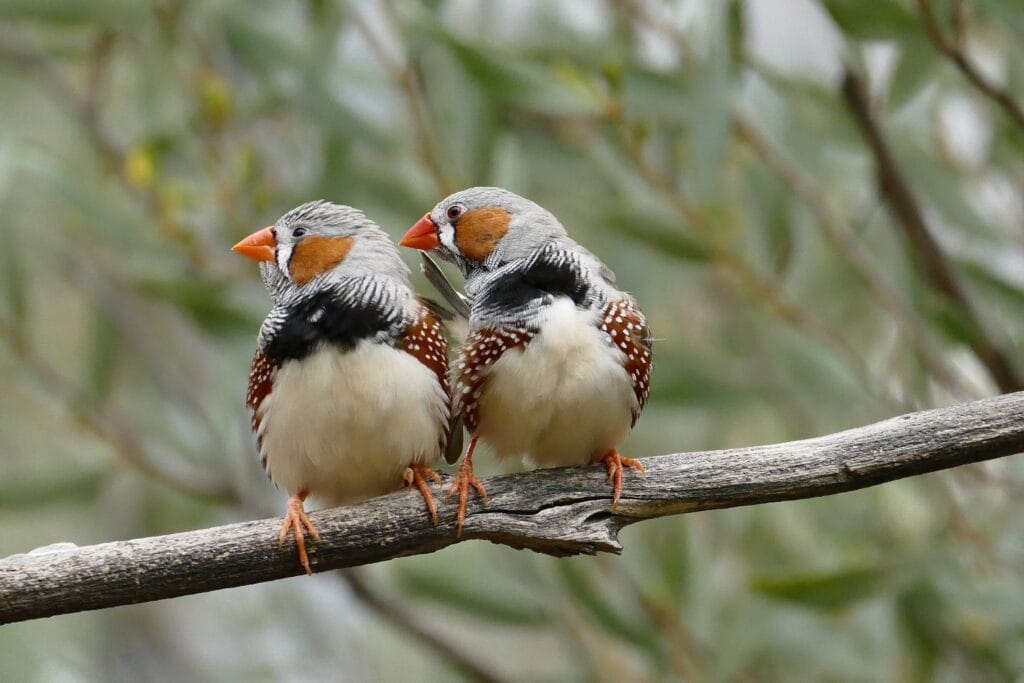Zebra Finches are some of the most popular pet finches around. Native to Australia, these colorful and animated little birds are beloved for their unique markings and sociability. Zebra Finches pair for life and are often kept in groups by pet owners because they thrive with lots of social contact. Reaching maturity in as little as 70 days after hatching, they are amongst the fastest maturing birds in the world.
Related Article: Miami Zoo Apologizes for Viral Mishandling of Kiwi Bird
Part of the process of maturing for male Zebra Finches involves learning how to sing. Different species of birds tackle this process differently, but in recent years scientific interest has turned toward the “language” development of birds as a model for human learning.
In the case of Zebra Finches, song-learning is usually done by listening to a mentor adult male. Young males learn to sing from their fathers or another bird that has assumed this role. At about 50 days old, males enter an experimental “puberty” stage of development wherein they practice their father’s song, listen to the songs of other males, and practice vocalizing. By 100 days, this development process is completed and the Zebra Finch has a song of its own, usually one that is very similar to its father’s.
A recent study examining this process has found that the hormone oxytocin plays a significant role in this process. Oxytocin sends chemical signals to the brain which, in humans, stimulate feelings like trust, parent-child attachment, romantic feelings, and sexual arousal.
To test the involvement of oxytocin in the song-learning process of young Zebra Finches, researchers exposed them to a variety of songs from different male “tutors.” For some tutors, the birds’ oxytocin receptors were blocked, but with others, the birds were allowed to process this hormone normally. The study found that, not only did the young birds grow up to sing a song that more closely resembled their unblocked tutor, but they also engaged in more active listening when said tutor’s song way played.
Additionally, the birds were trained to press different levers to hear various songs. Even once the oxytocin blockers were out of their systems, the young birds would actively prefer to push the lever to hear the song of the tutor whom they heard while receiving oxytocin versus the tutors whom they heard while blocked.
Researchers believe that the language-learning process in Zebra Finches is deeply rooted to early social bonding behaviors. This may prove to be a useful model for understanding early cognitive development in humans.
Popular Article: Awareness and Outreach on World Parrot Day

